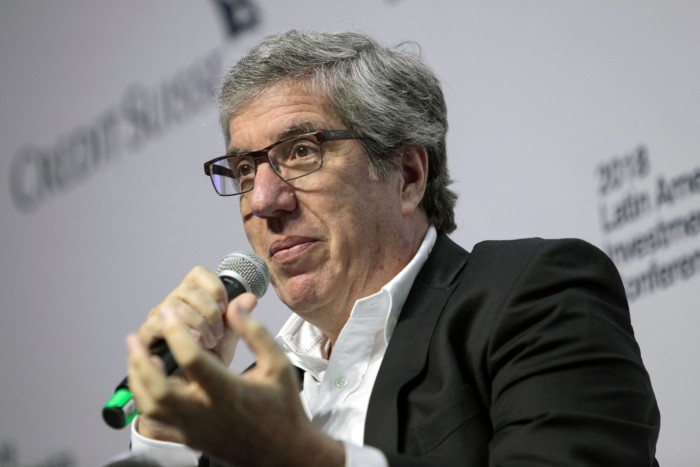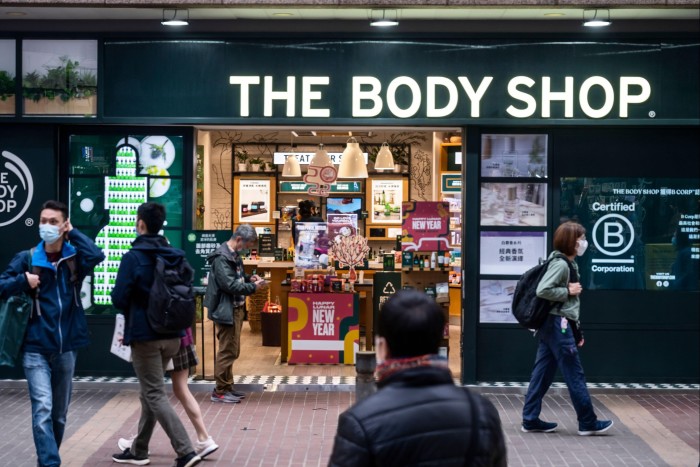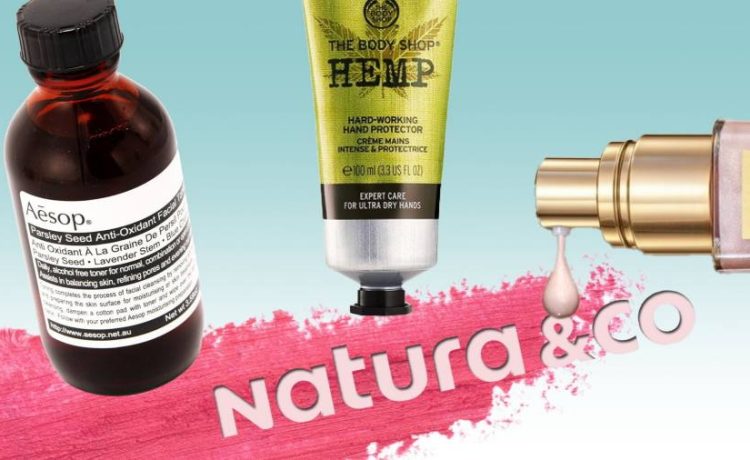Only a few years ago, Natura &Co was a rare case of a Latin American business pursuing truly global ambitions.
The Brazilian cosmetics maker, which prides itself as a standard-bearer for sustainability, embarked on an international drive in the last decade through acquisitions that took it into Australia, Europe and Asia.
Its all-stock purchase of door-to-door seller Avon for $2bn in 2019 turned Natura into the world’s fourth largest pure-play beauty group, with a stable of four brands including The Body Shop.
But the heady days of empire building are over. Following a drawn-out share price plunge during the latter half of the pandemic and with its accounts in the red, the São Paulo-headquartered company is in for an overhaul.
Hit by squeezed consumer spending and the conflict in Ukraine, the priority now is to improve the bottom line, according to its chief executive.
“The focus is more on margins and cash flow generation rather than growth in sales,” said Fábio Barbosa, a former banker who took over last year.

Alongside a corporate reorganisation, management is reviewing Natura’s business model and presence in underperforming markets.
“Expansion programmes, geographies that you might have had in the past, we are not bringing to the table anymore,” Barbosa told the Financial Times in an interview.
Established in 1969 as a small cosmetics shop on an upmarket street in São Paulo, Natura was a pioneer of direct selling in South America, similar to one-time competitor Avon.
The company is also widely recognised for its social and environmental credentials. For more than 20 years, its eponymous brand has sourced ingredients for soaps, moisturisers and shampoos from the Amazon, where it helps preserve vast tracts of land by working with local communities.
Investors will want to see purpose once again matched with profitability. Natura’s stock has fallen 80 per cent from a peak a year-and-a-half ago, wiping about $12.5bn off its market capitalisation. Today it is valued at just R$16.9bn ($3.2bn).
As retailers shuttered stores during the coronavirus pandemic, the personal care conglomerate initially benefited due to its direct sales and a push into ecommerce, but turnover has since shrunk.
Natura’s activities have held up fairly well in Latin America, where rivals include O Boticário. Most of the problems are concentrated elsewhere and often due to external factors, according to Itaú BBA analyst Thiago Macruz.

“What is the challenge here? The global operations are struggling a lot,” he explained. “There were some significant curveballs thrown their way”.
At Avon, sales have been affected by the conflict between Russia and Ukraine (Natura does not own the brand in North America). Meanwhile, The Body Shop’s large store portfolio across Europe has suffered as inflation on the continent eroded disposable incomes.
This contributed to a third consecutive quarter of losses last year that took Natura’s nine-month deficit to almost R$2bn ($380mn), while revenues fell 9 per cent in constant currency terms to R$26bn ($5bn) during the period.
Financial targets have been scrapped, including cost savings that were to be gained as a result of the merger with Avon.
Management is now betting that the group’s smallest business, which has proven a bright spot amid the difficulties, will provide an important element of the turnround.
A premium cosmetics marque originally from Australia that Natura bought a decade ago, Aesop is an exception to the emphasis away from expansion. Recently it opened its first stores in China, the main growth market for luxury goods globally.
“Aesop has always been very consistent,” said Vinícius Strano, an analyst at UBS. “It’s the only brand that held up while Natura, Avon and The Body Shop were deteriorating.”
A spin-off or stock market listing is under consideration for the unit, which analysts at Itaú have estimated could be worth R$8bn.

Cash proceeds from any deal would go towards funding Aesop and could also chip away at Natura’s significant borrowings. Group-wide net debt of R$8.8bn has risen to a ratio of 2.85 times earnings before interest, tax, depreciation and amortisation.
Another pillar of the plan is a restructure of the holding company. Barbosa said this was already bearing fruit, with central function overheads slashed by at least 40 per cent. Decision-making is also being devolved from the centre down to executives running each of the four divisions.
“It is much better to delegate, for each unit to have their own reaction to the market realities where they live,” the chief executive added. “It’s the flexibility that we gave to the business units to react. They have more autonomy to make decisions with accountability.”
Whether this will be enough to revive a pair of names regarded by some analysts and consumers as old and tired will be the test.
Natura acquired The Body Shop, a British ethical retailer famous for its stance against animal testing, from L’Oréal in 2017 at an enterprise value of €1bn. The aim is a “rejuvenation” of the business, founded in the 1970s by the late campaigner Anita Roddick, while shifting it away from discounts in order to boost margins.
“We want it to go back to the connection that this company always had with society, or even being a bit ahead of society,” said Barbosa. A new store format is being rolled out, initially in the UK where there are 207 stores, with fewer products and refilling stations that avoid packaging.
The revamped premises had already registered an increase in sales, said Barbosa.
While many big corporations have abandoned Russia following its invasion of Ukraine, Avon has stayed put, maintaining a “self-contained unit” that does not import or export. Barbosa defended the decision on the grounds that it offers a source of income for its famous “Avon ladies” — self-employed sales representatives.
Another source of potential gains is through greater integration of Natura and Avon in Latin America. Barbosa, however, is not looking for an “immediate reaction” from equity investors.
“I think the market would like to see the results rather than the thinking,” he said. “The share price will react once we see the results improving”.
Additional reporting by Carolina Ingizza





